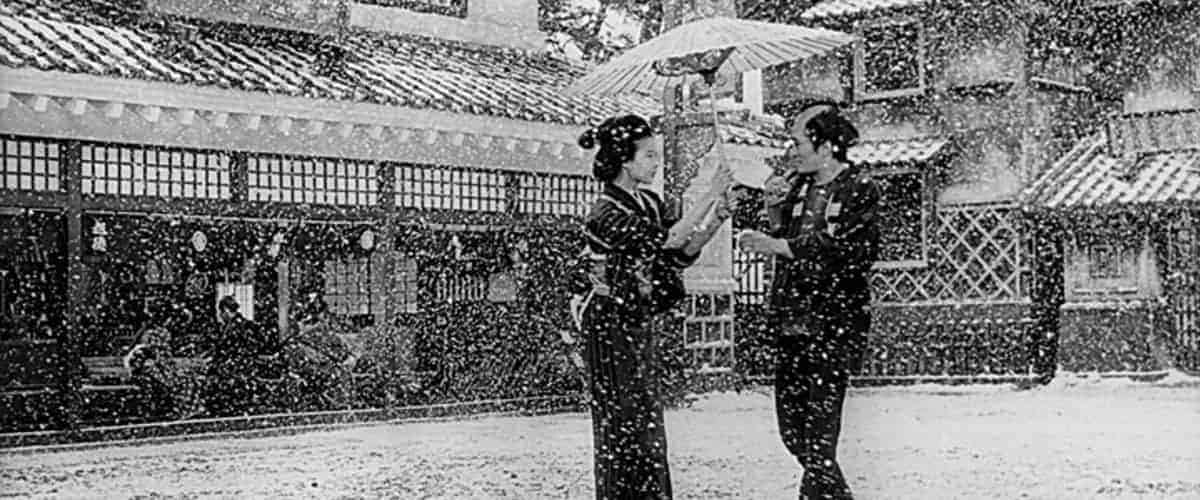Shinzo Katayama had previously shown his colors with “Siblings of the Cape” one of the best Japanese indies of the last few years. This time, he returns with a second feature that is a Japanese-S. Korean co-production that follows some of the rules his debut created, but in a much tamer fashion, at least in terms of visual presentation.
“Missing” is screening on Fantasia International Film Festival

Satoshi is depressed and in debt, following the death of his wife, while his issues have essentially forced his teenage daughter, Kaede, to be the adult in their family. One day, though, he informs her that he has found a way out of their misery, since he thinks that he has discoverd a serial killer the police have been searching for some time, nicknamed “No Name”. Kaede does not take him seriously, but a few days later he disappears completely, and the girl begins searching for him, with the help of a teacher and a classmate. Her search eventually leads her to Terumi Yamauchi, her father's colleague, and a small island, but a bit after her arrival, the narrative changes course completely, moving back some months in order to show what her father did before and how he came to know the serial killer's face.
Shinzo Katayama has come up with a very interesting narrative that manages to incorporate the concept of the serial killer and a whodunit element, along with rather pointed remarks about suicide and euthanasia, caring for incapacitated people, family, and how criminals and murderers are created, all the while, however, retaining a somewhat flimsical approach that mostly derives from Satoshi's persona.
Evidently, the amalgam is quite difficult to handle, but Katayama has managed to do a rather good job in implementing all these different elements in the same movie. The change of the protagonist(s) works quite well in that regard, as the two axes are rather different in style, particularly contextually. Furthermore, the moment they are joined emerges as one of the movie's best traits, with the different perspective of the same events being quite intriguing, and funny on occasion. Lastly, the way the characters are in the beginning, and the way they change through various events, but most of all, through their interactions, allows for even more of the aforementioned elements to be presented while analyzing the protagonists further, creating an empathy that would be very difficult to be generated in any other way, considering their deeds.
This last factor benefits the most by the acting, and particularly the presence of Jiro Sato as Satoshi, who gives an excellent performance, essentially remaining weak and naive even in his strongest moments. Aoi Ito is also excellent as Kaede, with her desperate resolve and her eventual disillusionment being among the movie's highlights. Lastly, Hiroya Shimizu in the role of Yamauchi is also great in portraying his character's quirkiness and coolness, while emitting a constant sense of danger.
The result of the narrative approach, the presentation of the comments and the acting eventually result in a greatly depicted story, which, however, and once more in a Japanese movie, stretches a bit too far in duration terms, particularly close to the ending. At the same time, though, Katayama manages to embed this issue much more organically than usual, with the ping pong scene, although rather lengthy, having a crucial function in the narrative. As such, Hazuki Kataoka's editing eventually emerges as a fitting one, particularly due to the way the two axes are split and reconnected, as much as the overall, relatively fast pace.
“Missing” is a step forward from “Siblings of the Cape” in many ways, most of them cinematic, but at the same time, I feel it is on lower level in terms of narrative, particularly because Katayama has chosen to compromise in some instances, regarding the reasons behind the protagonists' actions and the finale. This, however, does not mean that “Missing” is not good, on the contrary, the indie approach and the aforementioned amalgam have resulted in a rather interesting movie that manages to stray away from the plethora of similar productions coming out of Japan.
















